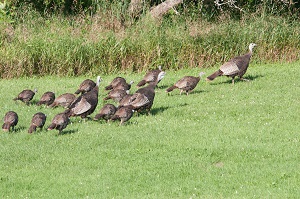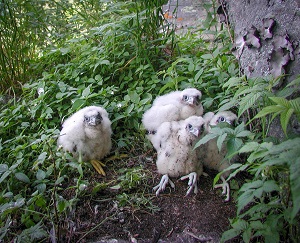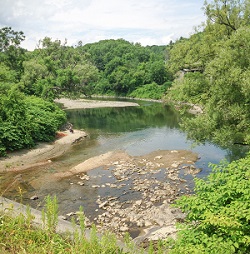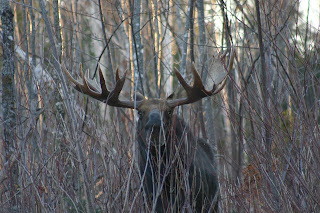Vermont Turkey Brood Survey Starts Aug. 1

MONTPELIER, Vt. – Wild turkeys are found throughout most of Vermont, but their reproductive success is monitored annually by the Vermont Fish & Wildlife Department with help from “citizen scientists” who report the number and size of turkey families they see during August. Fish & Wildlife is again asking the public for help. If you see a group of young turkeys in Vermont during August, the department asks you to go to the turkey brood survey on its website ( www.vtfishandwildlife.com ) so you can record where and when you observed the number of adult and young turkeys, or poults. When combined with annual harvest data, information gathered from this survey helps to establish long-term trends in Vermont’s wild turkey population,” said Vermont Fish & Wildlife’s wild turkey biologist Chris Bernier. “It also helps us assess the impacts of spring and winter weather on the survival of poults and adult turkeys which is an important consideration in the management o





